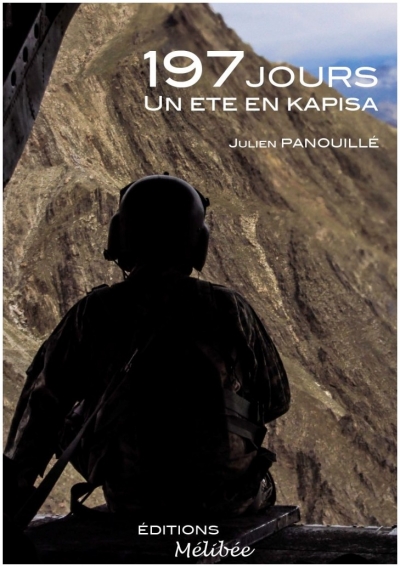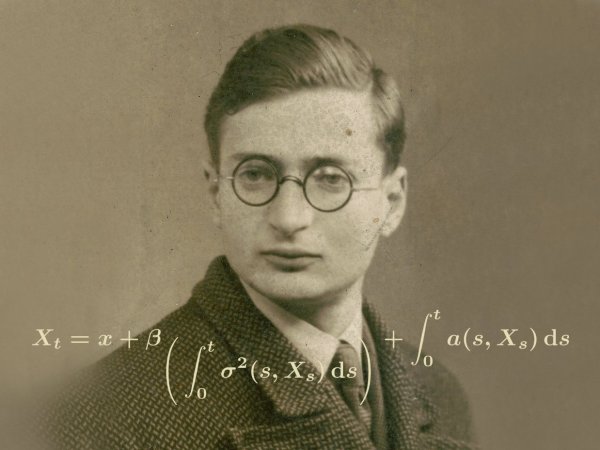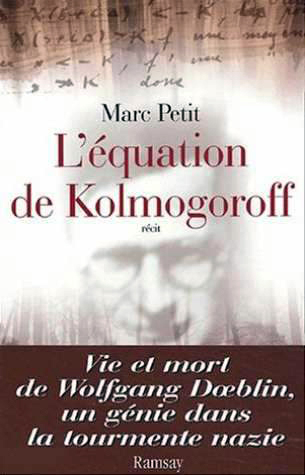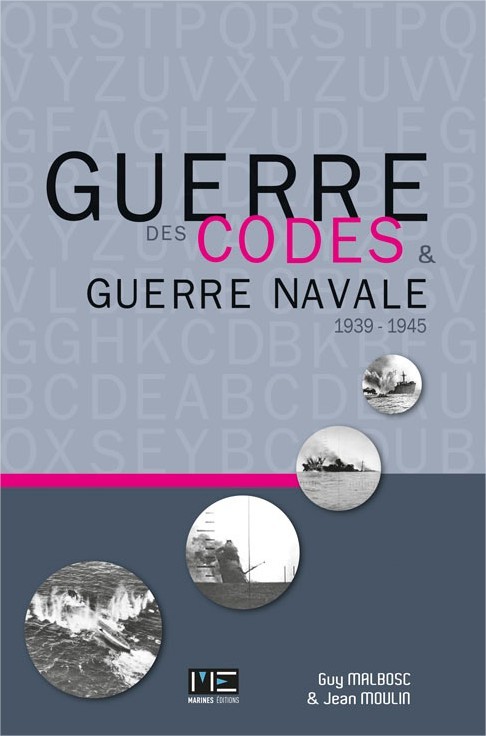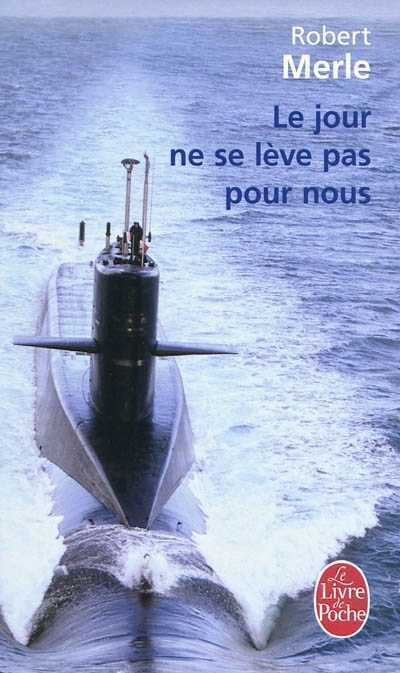- Posts: 3755
- Thank you received: 3613
Sidebar
Login Form
War literature
- Nikita
-
 Topic Author
Topic Author
- Offline
- "Never interrupt an enemy who's making a mistake." Napoléon Bonaparte
Less
More
11 years 9 months ago #7
by Nikita
Fine Otto, i'm glad to know that you read it
Replied by Nikita on topic Re: War literature
Fine Otto, i'm glad to know that you read it
Please Log in or Create an account to join the conversation.
- Nikita
-
 Topic Author
Topic Author
- Offline
- "Never interrupt an enemy who's making a mistake." Napoléon Bonaparte
Less
More
- Posts: 3755
- Thank you received: 3613
11 years 7 months ago - 11 years 7 months ago #8
by Nikita
Well, it's a long time i didn't post anything in this topic.
So here are two titles by the German writer Heinz Günter Konsalik. They are not really historic works, nor even faithful reports of what happened in these fights. They are novels which have for thorough the WW2. Sie fielen vom Himmel (They fell from the sky) speaks about the fights of the German parachutists at Monte Cassino, whereas Das Herz der 6. Armee (The heart of the 6th army) is situated during the battle of Stalingrad.
I personally like the way this author wrote, because often he didn't hesitate to call a spade a spade. The quote by this medic character at Stalingrad, who even has not a single clamp to operate a wounded soldier who is going to die is particularly revealing : "Murdered by the sanitary department of the army."...
If you feel like it...
Replied by Nikita on topic War literature
Well, it's a long time i didn't post anything in this topic.
So here are two titles by the German writer Heinz Günter Konsalik. They are not really historic works, nor even faithful reports of what happened in these fights. They are novels which have for thorough the WW2. Sie fielen vom Himmel (They fell from the sky) speaks about the fights of the German parachutists at Monte Cassino, whereas Das Herz der 6. Armee (The heart of the 6th army) is situated during the battle of Stalingrad.
I personally like the way this author wrote, because often he didn't hesitate to call a spade a spade. The quote by this medic character at Stalingrad, who even has not a single clamp to operate a wounded soldier who is going to die is particularly revealing : "Murdered by the sanitary department of the army."...
If you feel like it...
Last edit: 11 years 7 months ago by Nikita.
The following user(s) said Thank You: snowman, Juanma66
Please Log in or Create an account to join the conversation.
- Nikita
-
 Topic Author
Topic Author
- Offline
- "Never interrupt an enemy who's making a mistake." Napoléon Bonaparte
Less
More
- Posts: 3755
- Thank you received: 3613
11 years 6 months ago - 11 years 6 months ago #9
by Nikita
Replied by Nikita on topic War literature
Complete translation of the post by Joël AUDRAN, published on August 24, 2012 in the French regional newspaper Le Dauphiné Libéré.
(Original French post here)
Marksman in Afghanistan, Julien tells the war
May, 2011. In the plain of Kapisa, in Afghanistan, in the heart of a murderous war for the French army (one 88th soldier fell on the beginning of August), to write was "a therapy" for Julien Panouillé, corporal at the 1st Parachute Chasseur Regiment of Pamiers (Ariège).
In the evening, having tidied up weapons, this Montilien of 24 years took refuge behind the keyboard of its computer. Remembering itself the day which he lived, the mission which ended. The explosion of shells, the ceaseless shootings of assault rifles, the dry heat of the country, the long time, the wounded friends. "The adrenalin" also, "it carries us more than other things". And also, "the invisible enemy" and the confrontation with the death.
"We become used to everything, even to ceremonies when there are deaths", the young marksman says. A terrible sentence when read from our western society. But highly symbolic, in Afghanistan, of the tension, the horror. "The summer, 2011 was very murderous", calls back Julien Panouillé to those who would have forgotten it.
" The more we are close to the death, the more we feel alive "
His most striking memories are moreover violent: "A serviceman shot himself involuntarily, in the throat. It had been one month since we were there. That's my first confrontation with the flesh, with the blood, with the suffering". He also thinks again about this soldier who was behind him: "We were taken in ambush at night. He got a bullet in the mouth."
To darken the blank page of his computer "made good", said soberly Julien. He did not write to be published. Possibly to be read by his family, with whom he exchanged only brief communications during his mission, but no more.
His feelings are raw, his testimony precious. Because it brings to light a foreign world for the young generations, tells these multiple things which "destabilize" the soldiers every day. "The doubt", perpetual. "Sometimes, we go for a mission and we surprise ourselves to say to a friend: " I put my important personal belongings there, if needed i want that there is only you who touch it ". Nevertheless, "the more we are close to the death, the more we feel alive".
November, 2011. Six months after his arrival, where he also participated in the formation of the Afghan army, Julien Panouillé returned in France. "We were completely out of it during three or four days. We redo quite simple things, to drive, to have a drink in a terrace, but we feel a little bit alone having lived for a long time in group. Then, to re-become used to the normal life, we partied together in Toulouse".
Almost one year later, with the authorization of the French army, this former cyclist of Saint James bike-club of Montélimar, recently enthusiast for the free-fall, is going to publish the famous diary in which he tells his experience of the war. A testimony of 120 pages. A way maybe to pursue its patriotic commitment, he who is still overhelmed to be confronted with this question that "75 % of the persons" ask in the first one :
" Did you kill people ? "
(Original French post here)
Marksman in Afghanistan, Julien tells the war
May, 2011. In the plain of Kapisa, in Afghanistan, in the heart of a murderous war for the French army (one 88th soldier fell on the beginning of August), to write was "a therapy" for Julien Panouillé, corporal at the 1st Parachute Chasseur Regiment of Pamiers (Ariège).
In the evening, having tidied up weapons, this Montilien of 24 years took refuge behind the keyboard of its computer. Remembering itself the day which he lived, the mission which ended. The explosion of shells, the ceaseless shootings of assault rifles, the dry heat of the country, the long time, the wounded friends. "The adrenalin" also, "it carries us more than other things". And also, "the invisible enemy" and the confrontation with the death.
"We become used to everything, even to ceremonies when there are deaths", the young marksman says. A terrible sentence when read from our western society. But highly symbolic, in Afghanistan, of the tension, the horror. "The summer, 2011 was very murderous", calls back Julien Panouillé to those who would have forgotten it.
" The more we are close to the death, the more we feel alive "
His most striking memories are moreover violent: "A serviceman shot himself involuntarily, in the throat. It had been one month since we were there. That's my first confrontation with the flesh, with the blood, with the suffering". He also thinks again about this soldier who was behind him: "We were taken in ambush at night. He got a bullet in the mouth."
To darken the blank page of his computer "made good", said soberly Julien. He did not write to be published. Possibly to be read by his family, with whom he exchanged only brief communications during his mission, but no more.
His feelings are raw, his testimony precious. Because it brings to light a foreign world for the young generations, tells these multiple things which "destabilize" the soldiers every day. "The doubt", perpetual. "Sometimes, we go for a mission and we surprise ourselves to say to a friend: " I put my important personal belongings there, if needed i want that there is only you who touch it ". Nevertheless, "the more we are close to the death, the more we feel alive".
November, 2011. Six months after his arrival, where he also participated in the formation of the Afghan army, Julien Panouillé returned in France. "We were completely out of it during three or four days. We redo quite simple things, to drive, to have a drink in a terrace, but we feel a little bit alone having lived for a long time in group. Then, to re-become used to the normal life, we partied together in Toulouse".
Almost one year later, with the authorization of the French army, this former cyclist of Saint James bike-club of Montélimar, recently enthusiast for the free-fall, is going to publish the famous diary in which he tells his experience of the war. A testimony of 120 pages. A way maybe to pursue its patriotic commitment, he who is still overhelmed to be confronted with this question that "75 % of the persons" ask in the first one :
" Did you kill people ? "
197 days, a summer in Kapisa
Julien Panouillé
Editions Mélibée
Julien Panouillé
Editions Mélibée
Last edit: 11 years 6 months ago by Nikita.
The following user(s) said Thank You: snowman
Please Log in or Create an account to join the conversation.
- Nikita
-
 Topic Author
Topic Author
- Offline
- "Never interrupt an enemy who's making a mistake." Napoléon Bonaparte
Less
More
- Posts: 3755
- Thank you received: 3613
11 years 5 months ago - 11 years 5 months ago #10
by Nikita
Well, not really a book of war, even if the war is the context, but i wanted to mention it and remembering the story of Wolfgang Doeblin ...
The Kolmogorov equation, life and death of Wolfgang Doeblin, a genius in the nazi storm.
Replied by Nikita on topic War literature
Well, not really a book of war, even if the war is the context, but i wanted to mention it and remembering the story of Wolfgang Doeblin ...
The Kolmogorov equation, life and death of Wolfgang Doeblin, a genius in the nazi storm.
Last edit: 11 years 5 months ago by Nikita.
The following user(s) said Thank You: snowman
Please Log in or Create an account to join the conversation.
- Nikita
-
 Topic Author
Topic Author
- Offline
- "Never interrupt an enemy who's making a mistake." Napoléon Bonaparte
Less
More
- Posts: 3755
- Thank you received: 3613
11 years 5 months ago - 11 years 5 months ago #11
by Nikita
Replied by Nikita on topic War literature
Code war and naval war
1939-1945
An interesting study about the underestimated and nevertheless decisive epic of the encryption and the decryption during the WW2.
Marines éditions website here ( Only in French, of course, we are not a laggard by chance, regarding the English language... )
)
1939-1945
An interesting study about the underestimated and nevertheless decisive epic of the encryption and the decryption during the WW2.
Guerre des codes et guerre navale 1939-1945
Marines éditions
Marines éditions
Marines éditions website here ( Only in French, of course, we are not a laggard by chance, regarding the English language...
Last edit: 11 years 5 months ago by Nikita.
The following user(s) said Thank You: snowman
Please Log in or Create an account to join the conversation.
- Nikita
-
 Topic Author
Topic Author
- Offline
- "Never interrupt an enemy who's making a mistake." Napoléon Bonaparte
Less
More
- Posts: 3755
- Thank you received: 3613
11 years 1 month ago - 11 years 1 month ago #12
by Nikita
Replied by Nikita on topic War literature
Well, not really a book of war, because the action takes place in peacetime, but an interesting diving in the life of a French SSBN and its crew, which for seventy-five days, "the sun does not rise"...
The sky, however, is a delight. So high, so wide, with "passing clouds there, there, the wonderful clouds! ". I can not satisfy me. I have a hundred eyes, I do not even have enough to fill me to the brim with incredible joy that this view gives me.
The second-in-command makes me slightly elbow, I turn my head and the moonlight shining full upon his face, I'm surprised the expression of his face. I'm more surprised yet how he will talk to me - without irony, without abrupt laugh.
- It's nice, huh?
- Very nice, I say almost in a whisper.
- It's worth it, you do not live under water for seventy-five days to find it when you go back?
- Yes, I say, this is a discovery. A rediscovery. This is wonderful.
- Then he say, listen to me, Doc.
His voice is serious, urgent.
- For a week, maybe two weeks, you will marvel at the sky and clouds. Then it will pass away.
- So fast?
- Yes. You will forget.
- I will forget that the world is so beautiful?
- Yes, we forget, we always forget. At least make an effort to remember the good fortune we have.
- But I say, a lump in my throat, it will not be the same wonder as tonight?
- No, the wonder wears out. But it must be remembered. That's it. We must remember the happiness to have all that, daily, in front of our eyes: the earth, the sky, the clouds.
He takes a low voice:
- And it is so fragile now.
Robert Merle
Le jour ne se lève pas pour nous (The sun does not rise for us)
The sky, however, is a delight. So high, so wide, with "passing clouds there, there, the wonderful clouds! ". I can not satisfy me. I have a hundred eyes, I do not even have enough to fill me to the brim with incredible joy that this view gives me.
The second-in-command makes me slightly elbow, I turn my head and the moonlight shining full upon his face, I'm surprised the expression of his face. I'm more surprised yet how he will talk to me - without irony, without abrupt laugh.
- It's nice, huh?
- Very nice, I say almost in a whisper.
- It's worth it, you do not live under water for seventy-five days to find it when you go back?
- Yes, I say, this is a discovery. A rediscovery. This is wonderful.
- Then he say, listen to me, Doc.
His voice is serious, urgent.
- For a week, maybe two weeks, you will marvel at the sky and clouds. Then it will pass away.
- So fast?
- Yes. You will forget.
- I will forget that the world is so beautiful?
- Yes, we forget, we always forget. At least make an effort to remember the good fortune we have.
- But I say, a lump in my throat, it will not be the same wonder as tonight?
- No, the wonder wears out. But it must be remembered. That's it. We must remember the happiness to have all that, daily, in front of our eyes: the earth, the sky, the clouds.
He takes a low voice:
- And it is so fragile now.
Robert Merle
Le jour ne se lève pas pour nous (The sun does not rise for us)
Last edit: 11 years 1 month ago by Nikita.
The following user(s) said Thank You: snowman
Please Log in or Create an account to join the conversation.
- Lukasz birthday is in 10 days (41)





